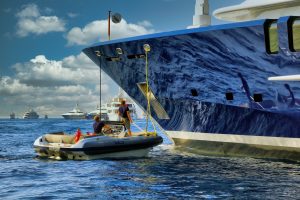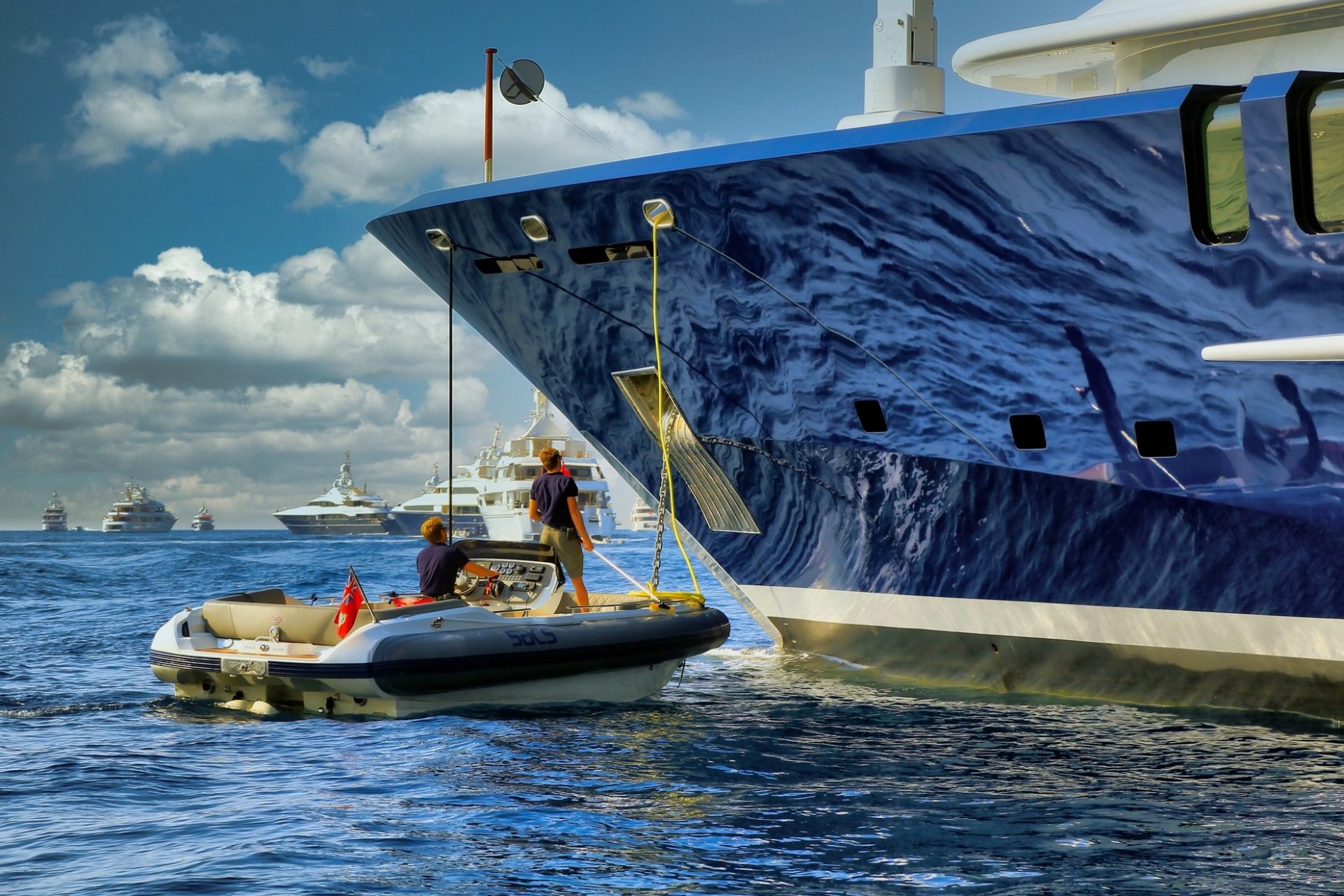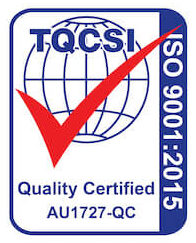How to Become a Deckhand on a Superyacht: A Step-by-Step Guide
Embarking on a career as a deckhand on a superyacht offers an unparalleled blend of adventure, luxury, and the opportunity to travel the world. Whether you’re drawn to the pristine beauty of the open sea or the meticulous care of magnificent vessels, becoming a deckhand could be your gateway to an extraordinary lifestyle. This guide provides a comprehensive overview of how to start your journey, covering everything from necessary qualifications to finding work.
What Is a Deckhand?
A deckhand is an essential crew member on Superyachts, responsible for maintaining the vessel’s exterior, assisting with docking, and ensuring safety equipment is up to par. Beyond upkeep, deckhands play a significant role in guest experiences, facilitating water sports activities and managing tender operations to transport guests. With a focus on detail, physical stamina, and a commitment to service, deckhands are key to both the operational efficiency and the luxury experience on board. This position offers a unique blend of adventure and professional growth for those passionate about the industry.There is a clear pathway leading deckhands from their starting point as a junior deckhand to becoming a captain which we will cover later on.

What Does a Typical Day Usually Look Like For a Deckhand?
A typical day for a deckhand varies from boat to boat and depends if there are guests on or off.With guests on , the deck crew usually start early in the morning going around the yacht to make sure all the furniture is uncovered, decks are clean , paint is shiny and everything is looking presentable for when the guests come out.The deck crew will set up the watersports equipment and launch tenders into the water to have them ready on standby for guest operations. Throughout the day the deck crew will be on standby waiting for guest requests taking them in tenders ashore ,exploring or to carry out watersport activities which could include jetskis, sea bobs, kayaks, surfing , wakeboarding, flight boards , snorkelling, diving and much much more.
What Qualifications Do I Need To Become a Deckhand On a Superyacht?
- STCW Basic Safety Training: The cornerstone certification for maritime professionals, covering safety protocols, firefighting, and sea survival techniques.( Mandatory )
- ENG1 Medical Certificate: A health certification confirming you’re fit for sea duty.( Mandatory )
- Powerboat Level 2 / IYT Small Powerboat & RIB Master: Often required for handling the yacht’s tenders and smaller boats. ( Some yachts mave have this as a mandatory requirement )
- Superyacht Deckhand Training: ( Not mandatory but highly recommended )
- LROCP (Long Range Operator Certificate of Proficiency) VHF/HF Marine Radio Operator’s Certificate Course ( not mandatory but recommended )
Where Can I Complete The Qualifications?
STCW 95 – https://www.superyacht-crew-academy.com/
ENG1 Medical Certificate: – https://www.gov.uk/government/publications/mca-approved-doctors-overseas/mca-approved-doctors-overseas
Powerboat Level 2 / IYT Small Powerboat & RIB Master: https://www.superyacht-crew-academy.com/courses/tender-driving-iyt-rib/
Superyacht Deckhand Training: https://www.superyacht-crew-academy.com/courses/superyacht-deckhand-course/
For AMSA Medical: https://www.sonichealthplus.com.au/services/legislative-medicals/maritime
LROCP (Long Range Operator Certificate of Proficiency) VHF/HF Marine Radio Operator’s Certificate Course : https://www.superyacht-crew-academy.com/courses/vhf-marine-radio-operators-certificate/
What Transferable Land Skills Are Good To Have For a Superyacht Deckhand?
Carpentry: Carpentry skills are indispensable for maintenance and custom fittings, ensuring the yacht’s aesthetic and structural integrity. Your ability to craft and repair woodwork is crucial for preserving the luxury and bespoke nature of superyachts.
Videography & Photography: In an era where digital presence is key, your videography and photography skills can be used to document voyages and market the yacht’s charter services, enhancing its appeal to potential clients.
Diving: Diving skills open up underwater maintenance and exploration services, adding an exclusive experience for guests and ensuring the safety and cleanliness of the yacht’s hull.
Fishing: Knowledge of fishing can enhance the guest experience, offering personalised excursions and the thrill of catching fresh seafood for onboard meals.
Swimming & Surf Instructing: Proficiency in swimming and the ability to instruct guests in water sports like surfing enrich the array of activities offered, ensuring guests have a memorable and active stay.
Fitness Instructor: As a fitness instructor, you can lead personalised workout sessions, helping guests maintain their fitness routines while enjoying the luxury of the yacht.
Driving Boats: Skill in driving tenders and other small boats is essential for transporting guests, leading excursions, and ensuring the smooth operation of all water-based activities.
Painting/Varnishing: Expertise in painting and varnishing is crucial for the upkeep of the yacht’s appearance, protecting it from the elements and maintaining its value.
Watersports Instructor
Watersports instruction encompasses teaching and guiding guests in activities such as jet skiing, wakeboarding, kiteboarding and paddleboarding. For superyacht crew, being skilled in watersports instruction not only enhances the guest experience by offering fun and engaging activities but also ensures safety and confidence in the water

Can Deckhands Have Tattoos?
The yachting industry values professionalism and a certain standard of appearance. While visible tattoos may not be a deal-breaker on all yachts, they can limit your job prospects. It’s advisable to be upfront about any visible tattoos when applying for positions.
Each yacht has its own unique culture and policies, particularly when it comes to tattoos. While some yachts are more lenient, embracing both small and large visible tattoos, others may enforce strict policies against them. It’s important to be transparent about any visible tattoos you have. However, there’s no need to disclose tattoos that are not visible.
Is It Hard Being a Deckhand?
It’s not all watersports and driving multimillion-dollar tenders , there are long days of work , loads of physically demanding work and a lot of job/yacht-specific skills to learn which only comes with experience working on Superyachts.There will be a lot of working outdoors in hot weather, a lot of yacht maintenance & cleaning.There will be a lot of hard work however there are so many rewarding experiences and memories that outway by far all the hard work.Make sure you have a can-do, positive attitude and don’t be afraid to help other departments on the yacht if you have spare time , it goes a long way.
How Much Do Junior Deckhands Earn?
Salaries for deckhands can vary widely based on the yacht’s size, the vessel’s itinerary, and the deckhand’s experience.
Junior Deckhands: Starting Salary: Junior deckhands, who are just beginning their careers in the yachting industry, can expect to earn between $2,500 and $3,500 USD per month. These entry-level positions provide the foundational experience necessary for a successful career at sea.
Experienced Deckhands: Salary Range: As deckhands gain experience and demonstrate their skills, their earning potential increases. Experienced deckhands can expect to earn between $3,000 and $4,500 USD per month, depending on the yacht’s size, the complexity of the itinerary, and the specific duties they are tasked with.
Lead Deckhands: Salary Insights: Lead deckhands, who have additional responsibilities and may oversee junior deckhands, can see their salaries increase to between $3,500 and $5,000 USD per month. Their role is more demanding, requiring not only a thorough understanding of deck operations but also leadership skills.
Bosuns: Earning Potential: Bosuns, who are responsible for supervising the deck crew and maintaining the exterior of the yacht, can earn between $4,000 and $6,000 USD per month. Their salary reflects their critical role in ensuring the vessel is in pristine condition and their ability to manage the deck team effectively.
Officers: Salary Range: Officers on yachts have significant responsibilities, including navigation and safety management. Their salaries can range from $5,000 to over $8,000 USD per month, depending on their rank, the size of the yacht, and their specific duties. Chief officers, who are second-in-command, can expect salaries at the higher end of this range.
Captains: Top Earnings: Captains, who have the ultimate responsibility for the yacht, its crew, and its passengers, can earn from $7,000 USD to well over $20,000 USD per month. The captain’s salary is influenced by the size of the yacht, the complexity of the voyages undertaken, and their level of experience.
Factors Influencing Salaries
Yacht Size: Larger yachts typically offer higher salaries due to the increased workload and expertise required.
Experience and Qualifications: Crew members with more experience and specialized qualifications can command higher salaries.
Charter vs. Private: Crew on charter yachts might earn more due to tips from guests, whereas private yacht crew salaries are often more stable but without the added bonus of tips.
What Does The Career Progression Look Like To Go From Deckhand To An Officer ( MCA Route ) ?

How Do I Find Superyacht Job Position Listings?
The best place to look is on crew agency websites or job search platforms like Yotspot which has a large number of job listings you can look through, create a profile and update your account with your CV and all your certificates then you will be able to apply for jobs.
Below is a list of almost all the crew agencies from around the world that you can sign up with to increase your chances of landing a job. It is a lot of work creating profiles and uploading documents, however, it could increase your chances of being connected with the right job at the right time.

Are There Facebook Groups That Post Job Listings?
Yes, there are multiple facebook groups that post job listings all the time , it’s great to sign up with as many as you can to increase your chances of finding a job. Please note: make sure to clean up your Facebook profile before signing up to the groups as future employers may see your profile and you want to make a good first impression.
Some groups include:

How To Become a Deckhand In Australia?
The process involves specific training and certifications, especially due to the requirements set by the Australian Maritime Safety Authority (AMSA). Here’s a step-by-step guide to help you navigate your way into this career:
1. Understand the Training Requirements
The foundational step to becoming a deckhand in Australia is to complete the necessary safety training. While the training is broadly similar across different countries, there are specific requirements for those intending to work on commercial vessels within Australia:
- STCW Basic Safety Training: This is a mandatory course for anyone working at sea, covering essential safety procedures, firefighting, first aid, and personal survival techniques. In Australia, the AMSA requires crew members working on commercial vessels to have an AMSA-compliant Certificate of Safety Training (COST).
- General Purpose Hand: The Australian General Purpose Hand Near Coastal Certificate I in Marine Operations qualification will enable you to work as a deckhand on Australian Registered commercial or private vessels
- AMSA Medical: If you wish to work on commercial vessels in Australia you will need an AMSA medical to ensure you are fit to work at sea you can find centres to complete the medical here – https://www.sonichealthplus.com.au/services/legislative-medicals/maritime
2. Choose the Right Certification for Your Career Path
Depending on where you intend to work, you’ll need to choose the appropriate certification:
- For Private and Foreign-Flagged Vessels in Australia: If your goal is to work on private or foreign-flagged vessels within Australia, you can use an MCA-approved STCW 95 certificate issued by the Marshall Islands, which SCA (Superyacht Crew Academy) offers. This certification allows you to work on private and foreign-flagged vessels in Australia, providing a pathway to gain experience before potentially heading overseas.
- For Commercial Vessels in Australia: If you aim to work exclusively on commercial vessels in Australia, such as charter boats or tour boats, you should obtain an AMSA Certificate of Safety Training (COST). This certification is specifically designed to meet the requirements for crew members on commercial vessels operating within Australian waters.
3. Gain Experience
- Start Locally: Gaining experience in Australia before heading overseas is highly recommended. Working locally allows you to understand the industry better, build your resume, and develop the necessary skills in a familiar environment.
- Consider Temp Work: Temporary positions can provide valuable experience and insight into the life of a deckhand. These roles can also offer networking opportunities, which are crucial in the yachting industry.
4. Plan Your Career Path
- Decide on Your Long-Term Goals: Whether you wish to explore international waters or prefer to stay within Australia, your career goals will influence the type of experience and certifications you should pursue.
- Continuous Learning: The yachting industry is constantly evolving, so staying updated with the latest safety protocols, regulations, and skills is essential for your career development.
Once you have completed your training sign up to as many Australian agencies as possible to increase your chances of landing a job , you can find a list of the Australian agencies below.
MARINE JOBS
AYC
MYS SUPERYACHT CREW
CHAPMAN YACHTING
SUPERYACHT CREW INTERNATIONAL
CREW PACIFIC
CHAMPION CREWING
What Are The Next Steps To Becoming a Deckhand?
Now you are ready to travel and become a deckhand on superyachts it is time to get certified, get all your qualifications mentioned earlier below:
- STCW Basic Safety Training: The cornerstone certification for maritime professionals, covering safety protocols, firefighting, and sea survival techniques.( Mandatory )
- ENG1 Medical Certificate: A health certification confirming you’re fit for sea duty.( Mandatory )
- Powerboat Level 2 / IYT Small Powerboat & RIB Master: Often required for handling the yacht’s tenders and smaller boats. ( Some yachts mave have this as a mandatory requirement )
- Superyacht Deckhand Training: ( Not mandatory but highly recommended )
- LROCP (Long Range Operator Certificate of Proficiency) VHF/HF Marine Radio Operator’s Certificate Course
Figure out where you want to look for work and head there to be based in the yacht hub to be around for interviews and networking.
Create your CV/resume and sign up to crew agencies online , creating your profiles and applying for jobs.
Attend job interviews and hopefully land your first deckhand role ( make sure to practice interview questions beforehand )
We interviewed a Superyacht captain with some really helpful advice on what to do and what not to do in interviews you can check it out below
Becoming a deckhand on a superyacht is an exciting path that offers more than just a job – it’s a lifestyle. With the right qualifications, a proactive approach to job hunting, and a commitment to continuous learning and improvement, you can embark on a rewarding Superyacht career. The world of superyachting awaits those with the courage to pursue their dreams of traveling , making good memories and friends.
Ready to Travel The World As a Superyacht Deckhand?
We have the necessary courses you need to start as an entry-level deckhand, head over to the link below for some more course information.
STCW 95+10 – https://www.superyacht-crew-academy.com/courses/stcw-95-10/
Superyacht Deckhand Course – https://www.superyacht-crew-academy.com/courses/superyacht-deckhand-course/
Superyacht Deckhand Package – https://www.superyacht-crew-academy.com/courses/superyacht-deckhand-package/
GPH ( General Purpose Hand ) – https://www.sydneymaritimeinstitute.com/deckhand-gphcourse
Best of luck with your career as a Superyacht Deckhand!


)
)